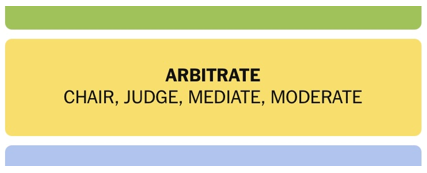Bridging Perspectives With Authenticity: A Spotlight Q&A With S. Karen Bamberger Esq.
Tell us a bit about your legal career prior to joining JAMS.
After practicing for a little over a year at a large law firm in Phoenix, doing both civil and white criminal law defense, I moved to Seattle, where I was at the same law firm—really—for over 35 years. I handled all types of civil cases, many of which were referred by insurance carriers. As a result, I learned that there is insurance for almost everything and that there are disputes over insurance coverage for almost every situation as well.
How did you get interested in ADR?
After a long career advocating for one side, I learned to appreciate that you cannot be effective unless you also understand the motivations and interests of the parties on the other side of the “v.” Over the years, I had opposing counsel, colleagues and even mediators tell me that they I thought I would be an effective mediator because I was viewed as fair and practical and as someone who could be persuasive without being argumentative. I was intrigued to adapt my skills to advocating for the ultimate goal: resolution of a case. I understand that not all cases can be resolved through mediation. In those situations, I believe arbitration can provide an excellent off-ramp to full-blown litigation, and I have handled arbitrations throughout my career as both a participant and arbitrator. I appreciate that arbitration is intended to be a more efficient and less expensive means for deciding issues, and I keep that goal top of mind when I serve as an arbitrator.
What core skills are necessary for success as a mediator or arbitrator?
I recently saw this answer on the popular word puzzle game in the New York Times, Connections:

I agree that the words may be connected, but mediating and arbitrating are two very different pursuits. As an arbitrator, you chair the hearing, keep it streamlined, make the decisions and judge the evidence. As a mediator, you moderate emotions and expectations. Of course, both roles require the neutral to be prepared and to listen. To be respectful to the parties and the process, you need to have done your homework, whether that means reading and analyzing submittals or taking the time to have a pre-session call with attorneys before a mediation. You listen intently regardless of the setting, but you are trying to learn different types of information when you are mediating than when you are arbitrating. Finally, whether as a mediator or an arbitrator, I believe you have to earn the trust of the participants.
Which practice areas are you particularly interested in developing at JAMS?
One of the joys of practicing law is being able to learn about all kinds of things and to come in contact with people from all walks of life. In my prior life as a practicing attorney, I very much enjoyed cases involving complex medico-legal issues, but I had the privilege of representing individuals and corporate entities in all manner of cases. I am interested in continuing to handle cases involving personal injury and product liability issues, but I enjoyed the variety of my prior practice and am happy to handle all kinds of cases.
What do you enjoy the most about mediating?
Mediation is gratifying because you can give parties the time and space to have their story heard and understood. When I have helped parties resolve a case, I have also helped them avoid the stress and the uncertainty of a trial, not to mention attorneys’ fees. I enjoy being able to meet the parties, observe the different styles of the attorneys and go deeper than the facts to try to understand the true motivations fueling the controversy. It’s never just about the facts.
Did you have a mentor? If so, what was the most memorable piece of advice you received?
Fred Betts was one of my mentors. He was an old-school insurance defense lawyer. Rumor has it that he once asked an attorney select a jury in one courtroom so he could finish a trial in another courtroom and then return for trial. He taught me that it is important to be yourself—what is now thought of as authenticity. When I serve as your neutral, I am my authentic self.
What was one of the more interesting cases you were involved with?
I will never forget the jury trial I had involving claims of negligent embalming. I learned a lot about funeral homes and how they are regulated, the process of embalming a body and how a body decomposes. At trial, experts included a well-known octogenarian pathologist and a forensic anthropologist from the so-called “Body Farm.” Needless to say, it was not your typical day at the office.
Disclaimer:
This page is for general information purposes. JAMS makes no representations or warranties regarding its accuracy or completeness. Interested persons should conduct their own research regarding information on this website before deciding to use JAMS, including investigation and research of JAMS neutrals. See More
